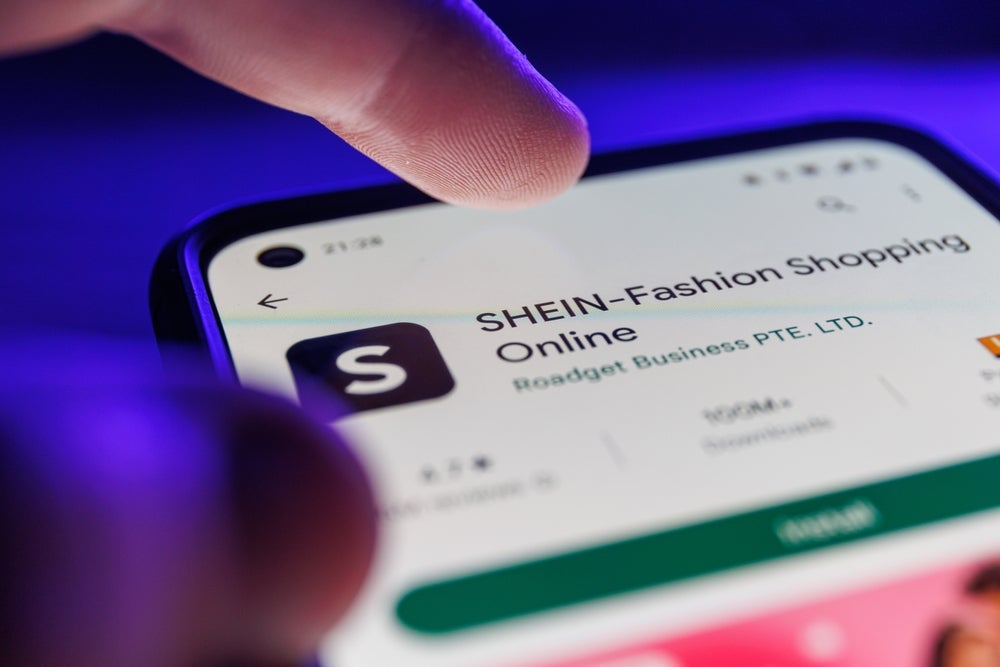Bloomberg obtained a letter by Virginia Democratic Representative Jennifer Wexton, on the Shein allegations, addressed to the multi-agency Forced Labor Enforcement Task Force (FLETF), a body chaired by the DHS, tasked with sanctioning companies found to be using forced labour and prohibiting them from selling their products in the US.
If Shein is found to be in violation of the UFLPA, a law prohibiting products from China's Xinjiang region it could potentially face a ban on its products entering the US, despite the company's US sales being on track to surpass $10bn this year, according to sources that spoke to Bloomberg.
Wexton's call for an investigation is based on concerns stemming from previous tests conducted by Bloomberg, which revealed that Shein had been using cotton sourced from Xinjiang.
The company itself has allegedly acknowledged that 2% of its cotton originates from this region. At the time Shein downplayed rumours that it had filed for an initial public offering (IPO), a spokesperson from the company told Just Style that Shein has “no suppliers in the Xinjiang region” and claimed to take” “visibility across our supply chain seriously”.
In her letter, Wexton expressed her belief that it is both appropriate and imperative for FLETF to initiate an investigation into Shein for potential violations of the UFLPA.
If found to be in breach of the law, Wexton urged the agency to add Shein to the sanctions list and prohibit the company from exporting its products to the US.
Wexton's letter also referenced a meeting between her staff and Shein's executive chairman, Donald Tang, who allegedly confirmed that Xinjiang cotton was indeed mixed with cotton from other regions in the company's supply chain, supporting Bloomberg's findings. In response, Shein has pledged to eliminate Xinjiang cotton from its products.
A Shein spokesperson told Just Style that it has a "zero-tolerance policy" for forced labour. They said: "We take visibility across our entire supply chain seriously, and we are committed to respecting human rights. To comply with US law, we require our contract manufacturers to only source cotton from approved regions."
The spokesperson added: "As of July 2023, only 2.1% of our cotton tested positive for unapproved cotton. According to global supply chain tracing firm Oritain, these amounts are much lower than the fashion industry average of 12%. In infrequent cases when cotton from unapproved regions is detected, we take immediate action such as suspending production, halting shipments to the US and removing US product listings. We are eager to engage and continue to be transparent will all stakeholders, including Representative Wexton and her staff, in discussions that will help us continue to add value to the US economy, support our American workers, and bring industry-wide benefits to consumers."
Wexton's letter has requested a response from the DHS within 30 days. DHS had not responded directly to Just Style’s request to comment at the time of going to press.
Based on our last report, the DHS has 27 companies designated on the UFLPA Entity List, however according to Bloomberg this number has risen and there are now 38 Chinese companies on its list of violators, prohibiting their products from entering the US.
This is not the first time Shein has faced such allegations. In May, US Senators penned a letter to Shein along with Nike, Adidas, and Temu asking them to address concerns that their global fashion supply chains engaged in the forced labour of Uyghur minorities in the Xinjiang Uyghur Autonomous Region (XUAR) of China.
The representative highlighted the concern that Chinese firms Shein and Temu, were allegedly using the de minimis loophole in US trade law as a way to skirt the UFLPA and continue selling goods under $800 made with Uyghur forced labour to American consumers.









